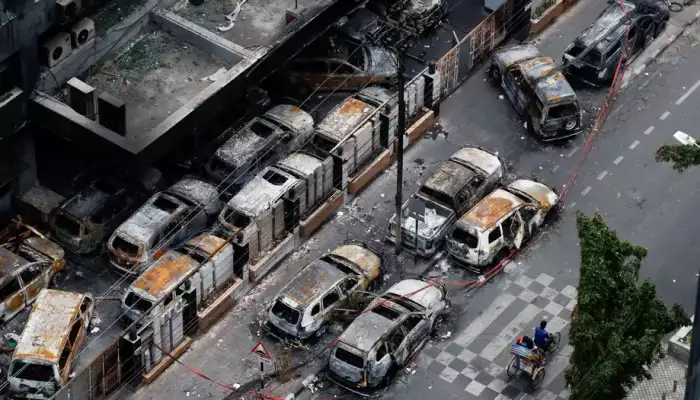
A student group that has led protests in Bangladesh against a quota on government jobs said Monday it has withdrawn its calls for a complete shutdown.
Dozens of people have been killed in the unrest last week, while authorities imposed an internet shutdown and a curfew.
On Sunday, the country's Supreme Court scaled back the controversial quota system.
Hasnat Abdullah, a coordinator of the Anti-Discrimination Student Movement, told the Associated Press (AP) news agency that they were withdrawing their calls for a complete shutdown.
"But we are issuing an ultimatum for 48 hours to stop the digital crackdown and restore internet connectivity."
Abdullah called for the the withdrawal of security officials deployed at universities should the reopening of student dormitories.
The group also demanded an end to the curfew and for the government to restore the internet.
Nahid Islam, the leader of the group, told the French AFP news agency that the reversal of their protest calls was due to the high death tollin the unrest.
"We started this movement for reforming the quota," Islam said. "But we did not want quota reform at the expense of so much blood, so much killing, so much damage to life and property."
According to information from hospitals, nearly 150 people died in the protests.
Police said on Monday that more than 500 people, including opposition politicians, have been arrested in the unrest in the capital, Dhaka.
What is the Bangladesh job quota?
The quotas originally reserved 30% of positions in the civil service for the families of people who fought for independence from Pakistan in the so-called Bangladesh Liberation War in 1971.
The quota rules were scrapped by the government in 2018, but a court reintroduced the system last month. The move caused widespread anger, particularly among the country's young people, who make up around a fifth of the population.
The Supreme Court ruled that just 5% of civil service jobs would remain reserved for children of independence war veterans and 2% for other categories.